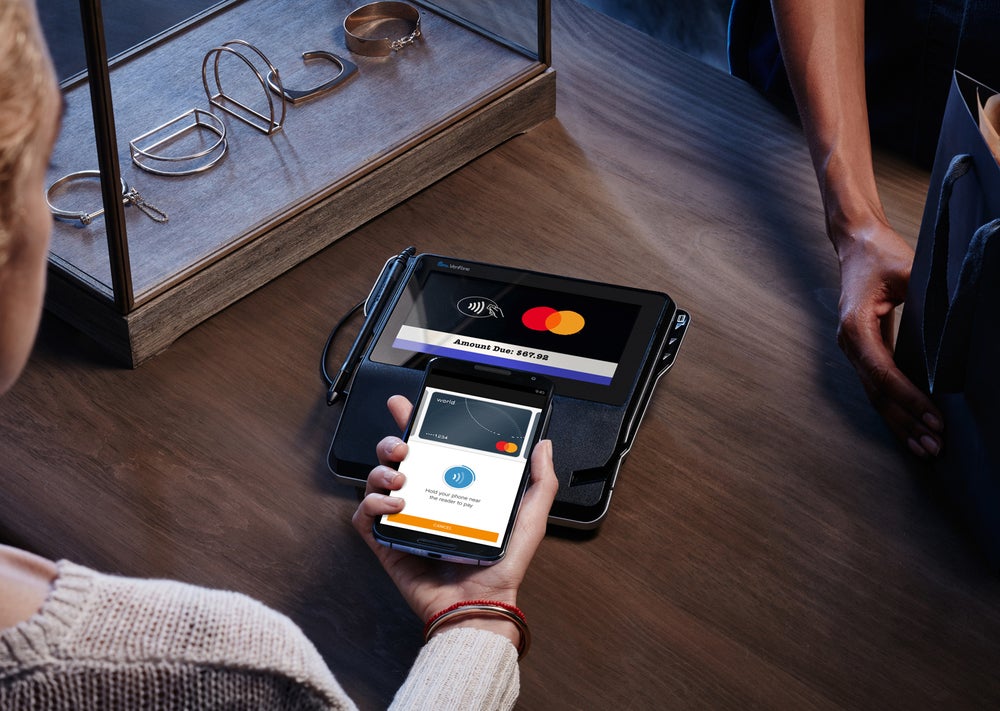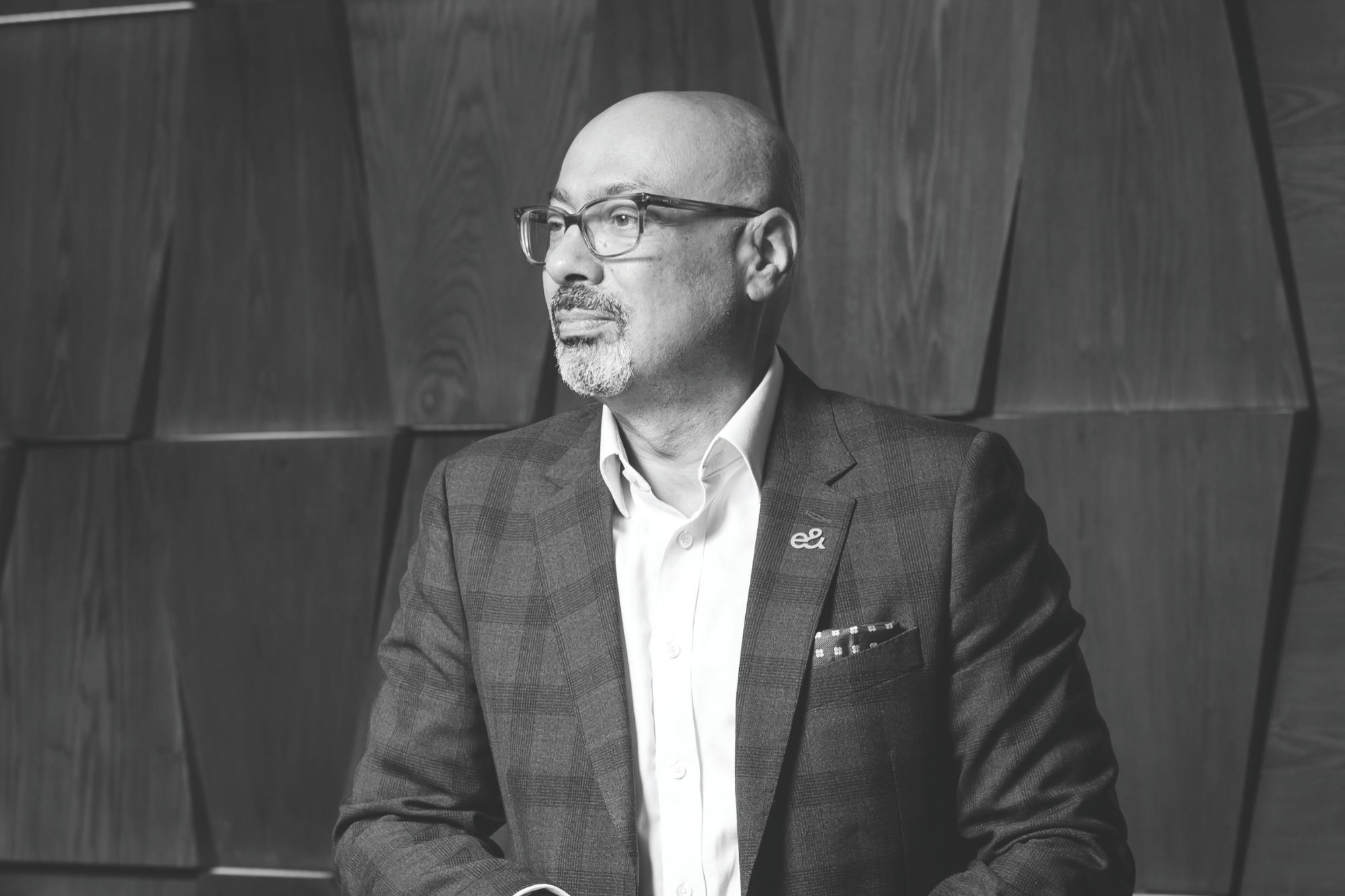Follow the Leader: Mete Güney, Executive Vice President, Market Development, EEMEA, Mastercard Mete Güney, Executive Vice President, Market Development, EEMEA, Mastercard, looks ahead to a new chapter of impact at the company.
By Tamara Pupic
You're reading Entrepreneur Middle East, an international franchise of Entrepreneur Media.
This article is a part of the 2025 edition of Entrepreneur Middle East's annual Follow The Leader series, where the region's business leaders share strategies, sector insights, and the professional challenges they navigate on the path to success.
Marking two decades at global technology payments giant Mastercard is no small feat—especially when those years have been defined by continuous growth, impactful leadership, and a deep commitment to innovation. After celebrating a 20-year milestone with the company, Mete Güney has stepped into an exciting new role: Executive Vice President, Market Development, EEMEA (Eastern Europe, Middle East, and Africa).
"Since joining Mastercard in 2005 as Vice President of Sales, my journey has been extremely rewarding," Güney recalls. "I was one of the youngest General Managers in Türkiye, taking charge of the Southeast Europe markets. In 2016, I moved to Dubai as the head of Mastercard Advisors, the company's business consulting services arm and the world's largest payments-focused consulting organization, for the Middle East and Africa (MEA) region."
Throughout his career, Güney has contributed to several milestone projects that have supported Mastercard's growth and impact across the region, including the launch of Masterpass in Turkey, the digitalization of transit payments in several cities, the establishment of our AI Center of Excellence in the UAE, a dedicated Cybersecurity hub in Saudi Arabia, and the launch of a training hub in Qatar to build local talent and capabilities.
Today, as Mastercard's Executive Vice President, Market Development, EEMEA, Güney is respon- sible for developing and executing the company's strategy in 80+ markets and leading the profit and loss (P&L) across multiple business verticals in the non-FI space, including merchants, telcos, governments, fintechs, retailers, airlines, and many digital players across the region. Plus, he is leading the team that manages the company's non-FI customer relationships while identifying and implementing new business opportunities with existing and new customers. With such an impactful career both behind and ahead of him, Güney credits one constant as the true driver of his success: the strength and support of his team. "Mastercard has become my second family – with colleagues who've turned into friends, mentors, and valuable partners," he says.
Güney will continue to navigate complex challenges with impact- with fintech innovations rapidly transforming the landscape of financial access and inclusion across the region, he remains committed to identifying the areas with the highest potential for growth while overcoming various challenges. "The main challenge we are facing in the region's emerging markets is the high percentage of the unbanked and underbanked among individuals, as well as small businesses," he explains. "While many people in these markets don't have a bank account, mobile phone penetration is relatively high. And this is where the opportunity lies."

Image courtesy of Mastercard
Güney points out that the mobile money ecosystem plays a pivotal role in expanding access to essential financial services, particularly for underserved and unbanked segments, quoting GSMA studies that show the MENA region witnessing the world's fastest growth in the number of active mobile money accounts at 28%. "At Mastercard, we connect consumers and businesses with trusted mobile payments across our global network, powered by our advanced technology," he explains. "We have been actively involved in introducing innovative mobile payment solutions to new markets in line with our vision for a financially inclusive future."
He predicts that the world's rapid technology advances will lead to digital wallets and online banks becoming increasingly important. "These innovations will not only benefit individual consumers but also empower SMEs, many of whom have historically struggled to access financial services," Güney explains. "By offering secure and user-friendly banking, fintech promotes financial inclusion, improving daily life and driving economic growth and financial fairness in communities worldwide." One example of this work is in Mastercard's initiatives in Egypt. The company collaborated with the Central Bank of Egypt (CBE) and the Egyptian Banks Company (EBC) to introduce Apple Pay to the Egyptian market, marking a significant step forward in offering secure, contactless payment options to consumers. In addition, it partnered with Saudi Arabia-headquartered payments infrastructure provider PayTabs to launch a digital payment platform that empowers SMEs across Egypt to accept digital payments more efficiently, expanding their access to the digital economy and supporting broader economic growth.
Also, Mastercard has long recognized the vital role telecom operators play in advancing financial inclusion, and Güney insists that partnerships with telcos expand the reach of its solutions to underserved segments of society and boost financial inclusion. "We are a technology partner of choice that supports telcos in diversifying their revenue and transitioning seamlessly to the finance space," he says. "Our collaborations with leading telecom players have allowed us to offer a better payment experience to millions of consumers on mobile money and digital wallet platforms, where they're already active and engaged."
He adds, "We are enabling people to make online payments to a global network of merchants or even finance big-ticket purchases through pay-on-demand platforms. On the other hand, our advanced infrastructure delivers a first-class digital journey to consumers, driving greater adoption and usage for the benefit of the telcos. It's a win-win situation."
A prime example is Mastercard's region wide strategic partnership with e& to drive an ambitious digital future for e& consumers in regional 16 markets. Through this collaboration, Mastercard has supported the evolution of e& money into a comprehensive superapp, designed to meet the full spectrum of customers' financial needs and enhance access to secure, seamless digital payment solutions.
Once the conversation shifts to artificial intelligence, Güney notes that Mastercard hasn't just embraced the technology—it has been actively invested in it for more than 15 years, positioning itself as both a pioneer and enabler in the evolving digital economy. "We are leading the way in utilizing AI, and are ramping up our investments in AI governance, technology, and talent," he says. "For example, AI allows us to protect the over 150 billion transac- tions that we switch on our network every year from cybercrime and fraud. In 2024, we initiated a collaboration with Dubai-headquartered digital commerce enabler Network International to make our AI-powered cybersecurity software Brighterion available to over 60,000 merchants across the region. Quick and easy to deploy, the technology monitors transactions for compliance, using machine learning tools that continuously update to keep up with cybercriminals' increasingly sophisticated techniques."
Mastercard's other activities in this space include the collaboration with Indian technology solution provider Redington in key EEMEA markets to protect all interactions across the payment ecosystem against cyberthreats, identity theft, fraud, money laundering, and disputes. More recently, Mastercard launched Account Intelligence Reissuance, an advanced fraud prevention service to efficiently manage the card reissuance process, in the EEMEA region. "The product leverages our
proprietary AI technology and network purview to assess the level of risk associated with a card and provide AI-driven actionable recommendations about which cards need to be monitored or replaced," Güney explains.
He adds, "in addition to its power to supercharge cybersecurity, AI plays a key role in analyzing the billions of data points that we have at our disposal today. This way, it drives better insights - from helping fintech companies decide on the best actions for their customers and proposing real-time personalized offers to generate more accurate predictions and improve measurements by removing bias. AI's ability to identify patterns and inform decision-making can help more people and businesses get access to credit and solutions that enable them to thrive in the digital economy."
As he looks to the future, Güney highlights AI's transformative potential for small businesses. "Companies that don't adopt AI risk being left behind," he says. "Evidently, SMEs in the region have been gradually embracing AI, usually by adopting one tool, testing its impact on one area of business and then scaling it across the organization. However, they are facing several barriers – from increasing costs to lack of technical expertise."
In this scenario, Mastercard is stepping in as a catalyst for change—partnering with fintech companies, governments, and banks to ensure that SMEs have access to cutting-edge digital payment solutions, real-time insights, and credit opportunities. "At Mastercard we remain dedicated to providing the tools, knowledge, and networks that the SMEs need to thrive. By fostering a more inclusive, digital-first economy, we are not just supporting SMEs - we are unlocking potential, driving progress, and building a future where every business can succeed," Güney concludes.
'TREP TALK: Mete Güney, Executive Vice President, Market Development, EEMEA, Mastercard, Advises Entrepreneurs Navigating the Tech-Finance Landscape
"Embrace the power of partnerships - but do so strategically. In today's tech-finance landscape, no one can go it alone. Entrepreneurs should look for collaborators that complement their capabilities - whether it's gaining access to infrastructure, scaling distribution, or building trust with new customer segments. Some of the most successful ventures we've seen in this region are those that harnessed partnerships early on - whether with banks, telcos, or technology platforms - to accelerate their innovation and impact. Focus on solving real-world problems, but don't be afraid to tap into established ecosystems to get there faster."
'TREP TALK: Mete Güney, Executive Vice President, Market Development, EEMEA, Mastercard, Advises Young Professionals
"It's crucial to recognize that career progression is not linear. Instead, it's a dynamic path offering diverse and unique opportunities. At Mastercard, we actively encourage and witness significant lateral career mobility, demonstrating that professional growth is equally achievable by expanding skill sets horizontally across different business functions as it is by advancing vertically into more senior roles. }Consistently deliver your best. "To truly unlock their full potential, I suggest to the young generation to prioritize continuous learning and skill development. Finally, strategically growing their professional network and proactively exploring new opportunities are paramount for long-term career fulfilment and impact."











